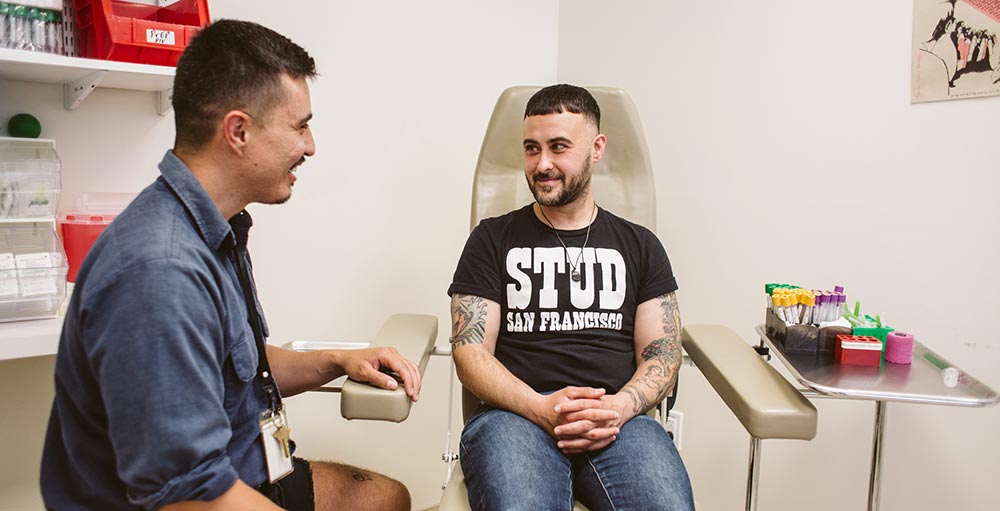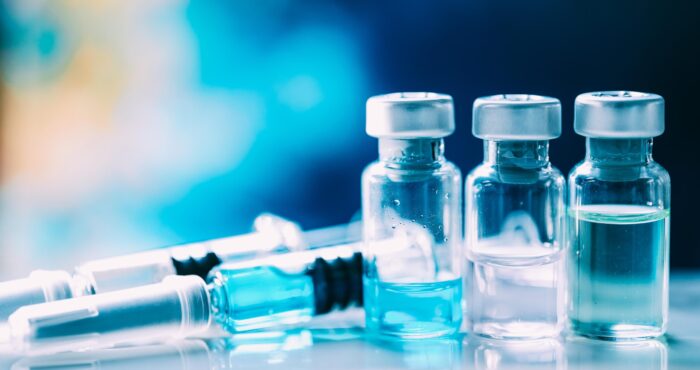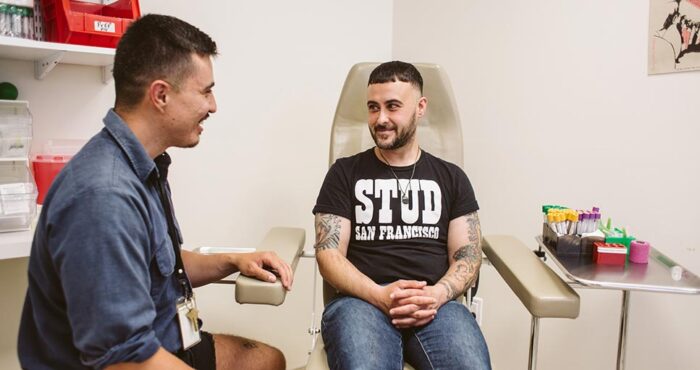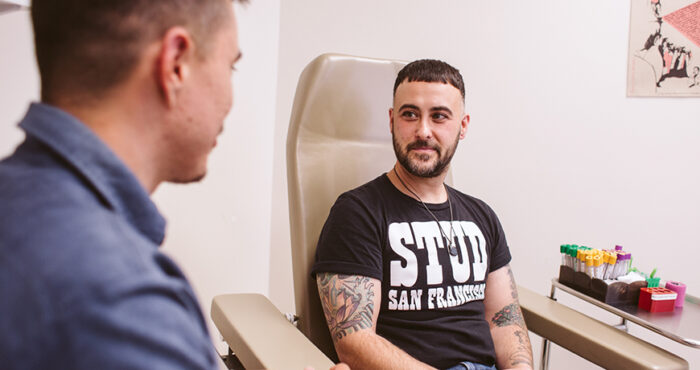Twice-yearly injectable PrEP is highly effective for gay men and trans individuals

Twice-yearly injectable pre-exposure prophylaxis (PrEP) has the potential to change the HIV prevention landscape, but only if it’s widely accessible to everyone who needs it, researchers and advocates say.
At the International AIDS Conference in July, researchers reported that semi-annual injections of Gilead Sciences’ antiretroviral drug lenacapavir were 100% effective for preventing HIV among young cisgender women in Africa. Now, a parallel study has shown that the same regimen reduced the risk of HIV acquisition by 96% among gay and bisexual men and transgender and nonbinary people in the United States and six other countries.
Together, these data position lenacapavir PrEP for Food and Drug Administration (FDA) approval for HIV prevention, possibly as soon as next year. Gilead is also testing lenacapavir PrEP for cisgender women in the United States and for people who inject drugs.
“The results coming from PURPOSE 2 are exciting,” said Jorge Roman, senior director of clinical services at the San Francisco AIDS Foundation. “Long-acting injectable versions of PrEP could do a lot to help us end the HIV epidemic. A key here is that new PrEP options must be affordable and accessible.”
While daily PrEP pills are around 99% effective when taken consistently, additional options are still needed. White gay and bisexual men in San Francisco and other cities have eagerly embraced oral PrEP, but uptake has been lower for other groups. The Centers for Disease Control and Prevention estimates that only about a third of the 1.2 million people in the United States who could benefit from PrEP are using it.
Some people have trouble remembering to take a pill every day and some are hesitant to have pill bottles that could be lost or stolen or reveal that they are at risk for HIV. Concerns about stigma and even violence can also be a barrier, especially for women. Having multiple options available helps ensure that everyone can find a prevention method that works for them.
“I think this will add an additional option of choice that will really empower key communities,” Dr. Daniel Driffin of the HIV Vaccines Trials Network said after his remarks at the U.S. Conference on HIV/AIDS last month in New Orleans. “The conversation should already be started on what a successful rollout will look like, especially for Black and brown communities, folks across the South and folks on Medicaid and Medicare.”
Currently, ViiV Healthcare’s Apretude (injectable cabotegravir), which is administered every other month, is the longest-acting PrEP option, but uptake has been slow. Only around 75 to 100 of the 2,700 PrEP clients at SFAF’s Magnet clinic and auxiliary sites have opted for Apretude, SFAF recently reported.
PURPOSE 2 Results
The PURPOSE 2 trial enrolled more than 3,000 cisgender men, transgender women and men, and nonbinary people who have sex with men at more than 80 sites in the United States, Argentina, Brazil, Mexico, Peru, South Africa, and Thailand. They were randomly assigned to receive either lenacapavir injections every six months or once-daily Truvada pills (tenofovir disoproxil fumarate/emtricitabine, or TDF/FTC).
There were two new HIV diagnoses among the 2,180 participants in the lenacapavir group, meaning 99.9% remained HIV-free. In comparison, there were nine cases among the 1,087 people assigned to Truvada. The HIV incidence rates were 0.10 and 2.37 per 100 person-years, respectively. Lenacapavir reduced the risk of HIV acquisition by 96% relative to the background incidence rate among people not on PrEP and by 89% relative to daily Truvada.
In the parallel PURPOSE 1 trial, conducted in South Africa and Uganda, there were zero new infections among the 2,134 cisgender women randomly assigned to receive lenacapavir, compared to 39 among the 2,136 women who received Descovy pills (tenofovir alafenamide/emtricitabine, or TAF/FTC) and 16 among the 1,068 women assigned to Truvada. The corresponding HIV incidence rates were 0.00, 2.02 and 1.69 per 100 person-years, respectively.
In both studies, injectable and oral PrEP were both safe and generally well tolerated with no new safety concerns. Side effects were uncommon and usually mild. Some study participants who received lenacapavir had injection site reactions, such as soreness. Lenacapavir injections form a long-lasting “depot” in the fat layer of the abdomen that slowly releases the drug over time, which can sometimes be felt as a nodule under the skin.
It’s important to note that despite its long-lasting activity, lenacapavir is an antiretroviral drug that stops HIV replication, not a vaccine that trains the immune system to fight the virus. After four decades of research, there are still no effective HIV vaccines, and twice-yearly PrEP could be the next best thing.
“The results of PURPOSE 2 extend the impressive evidence base that lenacapavir is safe and highly effective as PrEP, with the potential for profound impacts on those people who remain susceptible to HIV acquisition,” National Institute of Allergy and Infectious Diseases director Dr. Jeanne Marrazzo told SFAF. “The challenge for the field is not only access and scale up with keen cost considerations, but also committing to pursuing other prevention interventions so that policymakers and individuals have access to the widest array of choice in the event of barriers.”
Cost and Access
As soon as the preliminary PURPOSE 2 results were released in June, advocates began pressuring Gilead to provide lenacapavir PrEP at an affordable cost once it’s approved.
Lenacapavir (sold as Sunlenca) is currently approved only as part of a combination treatment regimen for people with multidrug-resistant HIV, at a cost of around $4,000 per month. Gilead has indicated that the PrEP price is expected to be lower. Generic versions of TDF/FTC pills can cost as little as $20 per month. A study presented at the International AIDS Conference showed that the price of lenacapavir could potentially be brought down to around $40 per year with voluntary licensing and competition between generic suppliers.
Gilead said it has committed to making lenacapavir available in the countries where the need is greatest, including expediting voluntary licensing to supply low-cost versions of the drug.
“Gilead will work urgently with regulatory, government, public health, and community partners to ensure that, if approved, we can deliver twice-yearly lenacapavir for PrEP worldwide for all those who want or need PrEP,” chairman and CEO Daniel O’Day said in a company news release.
SFAF is eager to offer new options that could enable more people at risk for HIV to access prevention tools that fit into their lives.
“We hope that the path to FDA approval for lenacapavir goes quickly and smoothly,” Roman said. “We still need more tools and resources to end HIV transmission in this country and globally. We’ve found that oral medications simply don’t work well for some people. And the version of injectable PrEP we currently have requires more frequent doses than some people prefer. So additional options that may work better for some people will help us give even more choice to people who may benefit from PrEP.”










